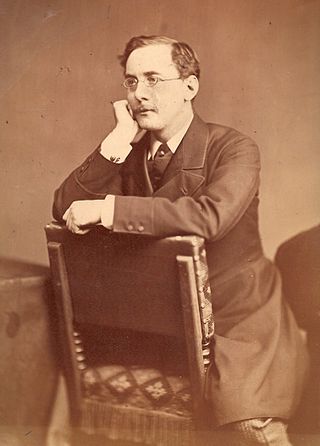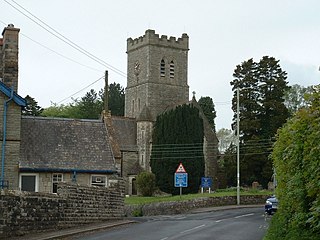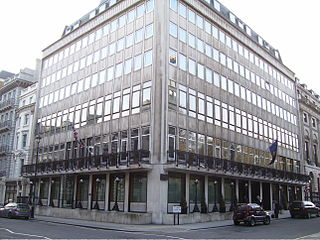
The Junior Athenaeum Club was a gentlemen's club in Piccadilly, London, from 1864 to the 1930s, with similar aims to the Athenaeum Club.

The Junior Athenaeum Club was a gentlemen's club in Piccadilly, London, from 1864 to the 1930s, with similar aims to the Athenaeum Club.
Its membership was made up of members of both Houses of Parliament, members[ clarification needed ] of the universities[ clarification needed ], fellows of the learned and scientific Societies, and gentlemen connected with literature, science, and art. Members were elected by ballot. The club's rules stated that “No ballot shall be valid unless at least twenty members actually vote. One black ball shall annul ten votes, a tie shall exclude.” The entrance fee was £31 10s., with an annual subscription of £10 10s. [1] This is roughly equivalent to £4,000 and £1,300 in 2023, when adjusted for inflation.
The Junior Athenaeum bought Hope House from Henry Pelham-Clinton, 6th Duke of Newcastle in 1864. It had been built in 1849–1850 by Henry Thomas Hope, Newcastle's father-in-law. On its completion Charles Dickens remarked on its extravagant interior. [2] Upon the club's dissolution, the building was bought and converted into a luxury Art Deco apartment block called The Athenaeum. In the 1970s the Rank Organisation incorporated the building into The Athenaeum Hotel. [3]

Duke of Newcastle upon Tyne was a title that was created three times, once in the Peerage of England and twice in the Peerage of Great Britain. The first grant of the title was made in 1665 to William Cavendish, 1st Marquess of Newcastle upon Tyne. He was a prominent Royalist commander during the Civil War.

Blackballing is a rejection in a traditional form of secret ballot, where a white ball or ballot constitutes a vote in support and a black ball signifies opposition. The system is typically used where an organization's rules provide that one or two objections, rather than an at-least-50% share of votes, are sufficient to defeat a proposition. Since the seventeenth century, these rules have commonly applied to elections to membership of many gentlemen's clubs and similar institutions such as Masonic lodges and fraternities.

A gentlemen's club is a private social club of a type originally established by old boy networks, typically from Britain's upper classes from the 17th century onwards.

The Arts Club is a London private members' club in Dover Street, Mayfair, founded in 1863 by Charles Dickens, Anthony Trollope, and Lord Leighton among others. It remains a meeting place for men and women involved in the creative arts either professionally or as patrons.

Charles Culliford Boz Dickens, better known as Charles Dickens Jr., was the first child of the English novelist Charles Dickens and his wife Catherine. A failed businessman, he became the editor of his father's magazine All the Year Round, and a writer of dictionaries. He is now most remembered for his two 1879 books, Dickens's Dictionary of London and Dickens's Dictionary of the Thames.
The United University Club was a London gentlemen's club, founded in 1821. It occupied the purpose-built University Club House, at 1, Suffolk Street, London, England, from 1826 until 1971.

St Stephen's Club was a private member's club in Westminster, London, founded in 1870.

Gads Hill Place in Higham, Kent, sometimes spelt Gadshill Place and Gad's Hill Place, was the country home of Charles Dickens. Today the building is the independent Gad's Hill School.

Boodle's is a gentlemen's club in London, England, with its clubhouse located at 28 St James's Street. Founded in January 1762 by Lord Shelburne, who later became Prime Minister of the United Kingdom and then 1st Marquess of Lansdowne, it is the second oldest private members' club in London and in the world.

Pen-y-fai is a village in the county borough of Bridgend, Wales within the Bridgend electoral ward area and the community of Newcastle Higher. The ward population taken at the 2011 census was 2,447.

The St James's Club was a London gentlemen's club which operated between 1857 and 1978. It was founded by two leading diplomats and its members continued to be largely diplomats and authors. It was first established in Bennet Street, and after a brief spell in Mayfair, moved to 106 Piccadilly by 1868. In the final quarter of the twentieth century many gentlemen’s clubs of London suffered from declining membership, and in 1978 the St James's Club merged with Brooks's Club and vacated its premises.

The Gresham Club was founded in 1843 and dissolved in 1991. It was named after Thomas Gresham. The Gresham Club's last site was located on Abchurch Lane off King William Street before it was sold to the London Capital Club, which in turn ceased operation in 2018. Following the closure of the London Capital Club, a number of the members relaunched The Gresham Club in 2018 and recreated the raison d'être of its original predecessor.

The Army and Navy Club in London is a private members' club founded in 1837 for British Army and Royal Navy Officers, it also known informally as The Rag. The Club offers Military membership to anyone who holds or has held a Commission in the British Armed Forces or in Commonwealth Forces, the club also now accepts applications for Non Military membership.

The Oriental Club in London is a private members' club that was established in 1824. Charles Graves described it in 1963 as fine in quality as White's but with the space of infinitely larger clubs. It is now located in Stratford Place, near Oxford Street and Bond Street. Based in an elegant building, the Oriental Club is one of the best members’ clubs for those in their 20s.

The Athenaeum is a family-owned five-star hotel overlooking Green Park in Piccadilly, London.

The Junior Carlton Club was a London gentlemen's club, now dissolved, which was established in 1864 and was disbanded in 1977.

The Athenaeum is a private members' club in London, founded in 1824. It is primarily a club for men and women with intellectual interests, and particularly for those who have attained some distinction in science, engineering, literature or the arts. Humphry Davy and Michael Faraday were the first chairman and secretary and 51 Nobel Laureates have been members.

The Isthmian Club, founded in 1882, later had premises at 105, Piccadilly, London, in a grand five-bay house that had belonged to Sir Julian Goldsmid, Bt. The non-political club was open to "Gentlemen who have been educated at one of the universities or public schools, and for officers of the army and navy," who were voted in by ballot of the steering committee. Its members were active in rowing, cricket and other sports.
![]() This article incorporates text from Dickens's Dictionary of London, by Charles Dickens, Jr., a publication from 1879, now in the public domain in the United States.
This article incorporates text from Dickens's Dictionary of London, by Charles Dickens, Jr., a publication from 1879, now in the public domain in the United States.
51°30′17″N0°8′51″W / 51.50472°N 0.14750°W